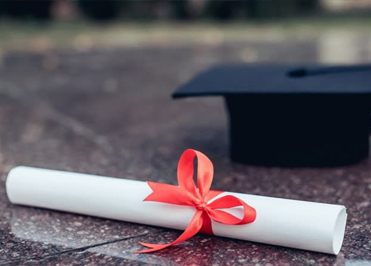The National Fish and Wildlife Foundation (NFWF) and the Wildlife Habitat Council (WHC), in cooperation with the U.S. Environmental Protection Agency (EPA), USDA Forest Service (USFS), U.S. Fish and Wildlife Service (USFWS), FedEx, Southern Company and BNSF Railway are pleased to solicit applications for the 2021 Five Star and Urban Waters Restoration program.
The Five Star and Urban Waters Restoration grant program seeks to develop community capacity to sustain local natural resources for future generations by providing modest financial assistance to diverse local partnerships focused on improving water quality, watersheds and the species and habitats they support.
Projects include a variety of ecological improvements along with targeted community outreach, education and stewardship. Ecological improvements may include one or more of the following: wetland, riparian, forest and coastal habitat restoration; wildlife conservation, community tree canopy enhancement, water quality monitoring and green infrastructure best management practices for managing run-off.
Priorities
On-the-Ground Restoration Projects must restore and/or create wetlands, coastal or riparian areas
- Address key species and habitats and link directly to established watershed and conservation plans, including establishment of urban wildlife corridors, fisheries and daylighting of streams.
- Address stressors through restoration techniques and green infrastructure practices that manage stormwater and rural run-off and link directly to stormwater management plans, source water protection plans and water supply planning effortsor demonstrate the linkage between restoration and stormwater management and the quality, quantity and safety of local water and waterways
- Collect and analyze local waterway samples that could be used to determine the effectiveness of current stream/wetland restoration and green infrastructure efforts and inform future planning and decision-making
- Develop/implement trash and litter prevention programs designed to keep urban waterways and riverfronts clean
- Develop public open spaces, create or enhance community parks, improve and protect community tree canopy, enhance brownfield sites beyond required remediation
Environmental Outreach, Education & Training Projects must integrate meaningful outreach, education and/or training into the proposed on-the-ground activities that advance local watershed and conservation goals
- Engage the public – particularly youth – in hands-on, outdoor conservation experiences that build awareness of the importance of protecting and recovering priority and/or at risk species and habitats and promote stewardship
- Engage communities in restoration at public areas – such as schools, parks, birding trails and more – for public health and recreation
- Establish or advance a community science or water quality monitoring program that involves community members and/or addresses community water quality priorities
- Improve understanding of damaging trash and litter impacts in local waterways that affect community health and local economies
Community Partnerships Projects must involve five or more partners (public and private entities) including the applicant
- Directly engage a diverse group of community partners to achieve ecological and specific educational outcomes including partnerships among upstream and downstream communities
- Demonstrate that the project will advance existing local watershed or conservation plans and/or propose to foster and coordinate a diverse stakeholder partnership that develops and/or implements new plans
- Identify plans to provide training, partnership meetings and presentations to build support for the project during and beyond the project period
Measurable Results Projects must result in specific, measurable ecological, educational and community benefits
- Identify measurable activities and metrics which clearly link to watershed and community outcomes
- Document a high level of community engagement to support fish and wildlife habitat, urban and community forestry, water quality-related recreational activities and improve understanding across diverse audiences of how fish and wildlife conservation, clean water and healthy forests contribute to community well-being
SustainabilityProjects must include a plan for maintenance and care of the project beyond the grant period
- Describe a commitment to community strength and long-term capacity to remain engaged as partners
- Address any priority and/or at-risk species, habitats or conservation actions identified in State Wildlife Action Plans or other recovery or conservation plans
- Directly connect outcomes to community benefits of watershed restoration such as clean water, public health benefits, local economic development and jobs
- Fulfill or advance priorities identified through local planning efforts, including watershed, disaster and sustainability plans
- Develop restoration and stewardship approaches that contribute to pre and post disaster planning, resiliency of community water assets and link to local hazard mitigation, resilience and/or emergency management plans
Funding Information
Approximately $1,500,000 is available nationwide for projects meeting program priorities. There is one round of full proposals annually for this program. Awards range from $20,000 to $50,000 with an average size of $35,000 and 40-50 grants awarded per year.
Eligibility Criteria
- Eligible applicants include non-profit 501(c) organizations, state government agencies, local governments, municipal governments, Indian tribes and educational institutions
- Ineligible applicants include: unincorporated individuals, businesses, international organizations and U.S. federal government agencies
For more information, visit National Fish and Wildlife Foundation.
